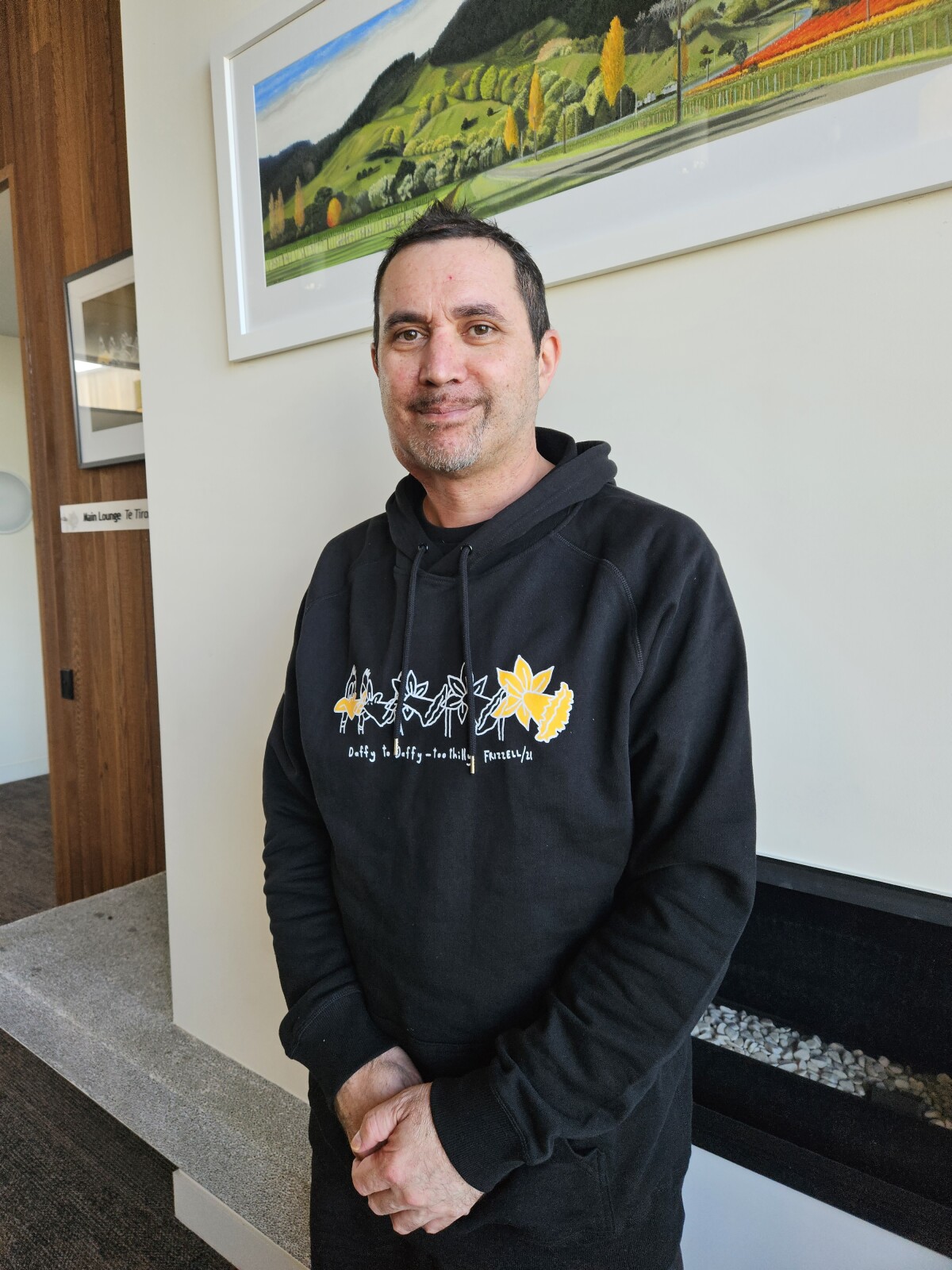In February, Rotorua resident Gareth Gillies had a slight tickle in his throat. By March, that tickle had become a cough. He promptly visited his GP where he was told his tonsil was swollen and needed to be removed. Two months later, it had tripled in size and Gillies was finding it hard to sleep.
“When I went to the hospital for my pre-surgery checkup, the doctor took one look at it and said there was an 80 to 90% chance that it was cancer on my right tonsil. I was put on the urgent operating list. I had lots of blood tests, MRI, a CT scan and then I had my operation in May.”
A biopsy was sent away and Gillies received the shocking news that it had, indeed, been cancer.
A scan showed that Gillies was now cancer-free but radiation treatment would be required to ensure any remaining cancer cells were killed. But in the time that passed waiting for radiation, a lump appeared on the side of Gillies’ neck that rapidly began to grow.
“I went for a scan and it picked it up. My whole tumour was glowing. It was cancer, fast-growing cancer. After the CT scan, things started rolling and I was back and forth to Hamilton from Rotorua.
“Because it was in the head and neck area, there are a lot of other tests you have to do. There’s a lot of dental work that needs to be done because when they’re radiating the area, there’s a high chance you can get infections in your gums and into your bone and jaw. I had to go to the dentist [to remove teeth] and I was just so stressed and worried.”
Gillies was given an extensive treatment plan involving chemotherapy and radiation over multiple weeks which meant he had to take the rest of the year off work. Instead of continuing to drive backwards and forwards from Rotorua, he was able to stay at the Cancer Society’s Lions Lodge.
“I don’t think I would be in a proper mental state if the Lodge didn’t exist. One thing that’s unique about this place is the support network that you have with other cancer patients. We just stick together, we’re quite tight. I can concentrate on healing and being positive and just resting as well.”
That support network helped Gillies to open up and talk about his experience, which at first he struggled to do.
“I’m quite a private person so I didn’t really want to talk about it. Since I’ve been at the Lodge, I’ve found it very beneficial. There are no barriers here because you know they’re in the same boat as you. They give me inspiration. They never give up their positive attitude.”
Gillies admits that the treatment process has been gruelling, particularly so because of the type of cancer he has.
“I have permanent hearing loss from the chemo. I don’t mind as long as I can kill my cancer! I’ve lost my taste buds, I can’t taste food. Everything tastes like cardboard and water. I can’t eat solids but I’m trying to keep my weight up because I don’t want to have a peg in my stomach. I’m just trying my hardest to keep my weight up and just recover.”
Gillies has now completed this phase of his treatment plan and has left the Lodge but says more people need to know about the service it provides.
“Every single cancer patient is just amazed it exists. Being at the Lodge, it just cancels out a lot of the stress. Every day is 100% focused on healing and beating the cancer. Now I know this place exists, I’m going to be a donor for life. It’s going to be in the back of my mind when Daffodil Day comes up – I’m giving! New Zealand is very, very lucky to have something like this for free.”
About head & neck cancers
Head and neck cancer is a general term for a range of cancers that start in the tissue or lymph nodes in the head and neck area. Human papilloma virus (HPV) can increase the risk of cancers in the tongue, tonsil, and throat (oropharynx). The Cancer Society recommends the HPV vaccination to help protect from 6 different types of cancer caused by the HPV virus. The free vaccine is offered through most schools in Year 8. This is the best age to get it. If tamariki miss getting the HPV vaccine at school, they can still get it free at their medical centre. Teens and young adults who didn’t have the HPV vaccine in Year 8 also need to be vaccinated. Its free through their medical centre or family planning clinic up until their 27th birthday. More information can be found here.

